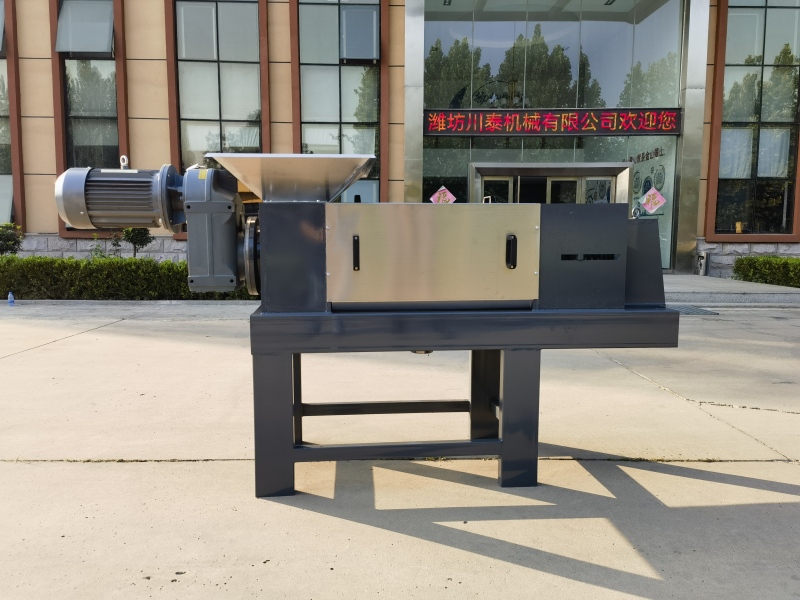
A food waste shredder and dewatering machine is an innovative and efficient solution designed to tackle the growing problem of food waste in various industries. This advanced equipment combines shredding and dewatering processes to reduce the volume of food waste and extract valuable resources from it.
The food waste shredder component is responsible for breaking down organic waste materials into smaller particles, making them easier to handle and process. This shredding process not only reduces the overall volume of the waste but also accelerates the decomposition process, making it more manageable for further treatment.
Following the shredding process, the dewatering machine comes into play. This component utilizes mechanical and/or chemical methods to remove excess moisture from the shredded food waste. By removing water content, the machine significantly reduces the weight and volume of the waste, making it more cost-effective to transport and dispose of. Moreover, the extracted moisture can be repurposed for various purposes, minimizing environmental impact and promoting sustainable practices.
One of the key advantages of a food waste shredder and dewatering machine is its ability to process a wide range of organic materials, including kitchen waste, vegetable scraps, fruit peels, and leftovers from food processing plants and restaurants. By converting these organic wastes into a manageable and valuable resource, businesses can contribute to reducing landfill usage and methane emissions, which are significant environmental concerns associated with food waste disposal.
Furthermore, the extracted moisture, often rich in nutrients, can be utilized as organic fertilizer or converted into biogas through anaerobic digestion processes. This promotes circular economy principles, where waste materials are recycled and repurposed, reducing the overall environmental impact and creating economic opportunities for businesses involved in waste management.
In summary, a food waste shredder and dewatering machine play a crucial role in addressing the global food waste challenge. By efficiently processing organic waste materials, these machines contribute to environmental sustainability, resource conservation, and the creation of a more circular economy. Businesses and industries adopting these technologies can significantly reduce their ecological footprint while maximizing the potential of organic waste resources.




If your company wants to establish a business relationship with us, please briefly describe the cooperation intention and send an email to:chuantaiscrewpress@gmail.com























































































![[list:title]](/static/upload/image/20240528/1716877114510915.jpg)